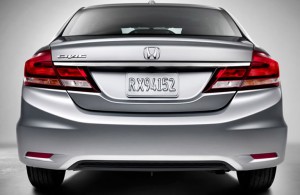Guest Post by Eric Peters
So much would be possible – if it weren’t for the government.
Government, remember, is not composed of experts in much of anything – except control and manipulation. Politicians and bureaucrats are not people who do things.
They force others to do things.
In the car world, you have the ridiculous spectacle of non-engineer mechanical imbeciles dictating functional parameters of engine design to people who actually do know how a four-stroke engine works, the meaning of stoichiometry; who understand that there is an inherent conflict between fuel economy and “safety.” That the more a car is designed to meet the first objective, the less it will meet the second.
And the reverse.
Result?
The engineers are told to deliver both in equal measure – and we end up with cars that are heavy and thirsty.
It’s a tragedy – a comic one, when you put it in context.
Here we are – almost 2016 – and the typical new car is about as economical to drive as the typical car of 1985. This is hard to believe, but you should believe it because it’s true. The typical car of the early-mid-1980s was averaging mid-high 20s – just like today. There were numerous models available that approached or even exceeded 40 MPG on the highway. A few (like the diesel-powered VW Rabbit) got into the 50s.
They did this without direct-injection or even port fuel-injection. Many still had carburetors. Eight and nine-speed transmissions (with the top three gears being overdrives) were unheard of. Most automatics of this era had four speeds. Some still had just three.
But the one thing the cars of that era did have was less weight – about 500-800 pounds less of it, on average, than comparable cars have today. And the sole and only reason for all this additional weight is the increased demand for “safety” eructing from the solons in Washington. Well, so we must presume. Because the people who actually buy the cars were never offered the free choice. It would be interesting to find out what they’d choose if they did have that choice.



